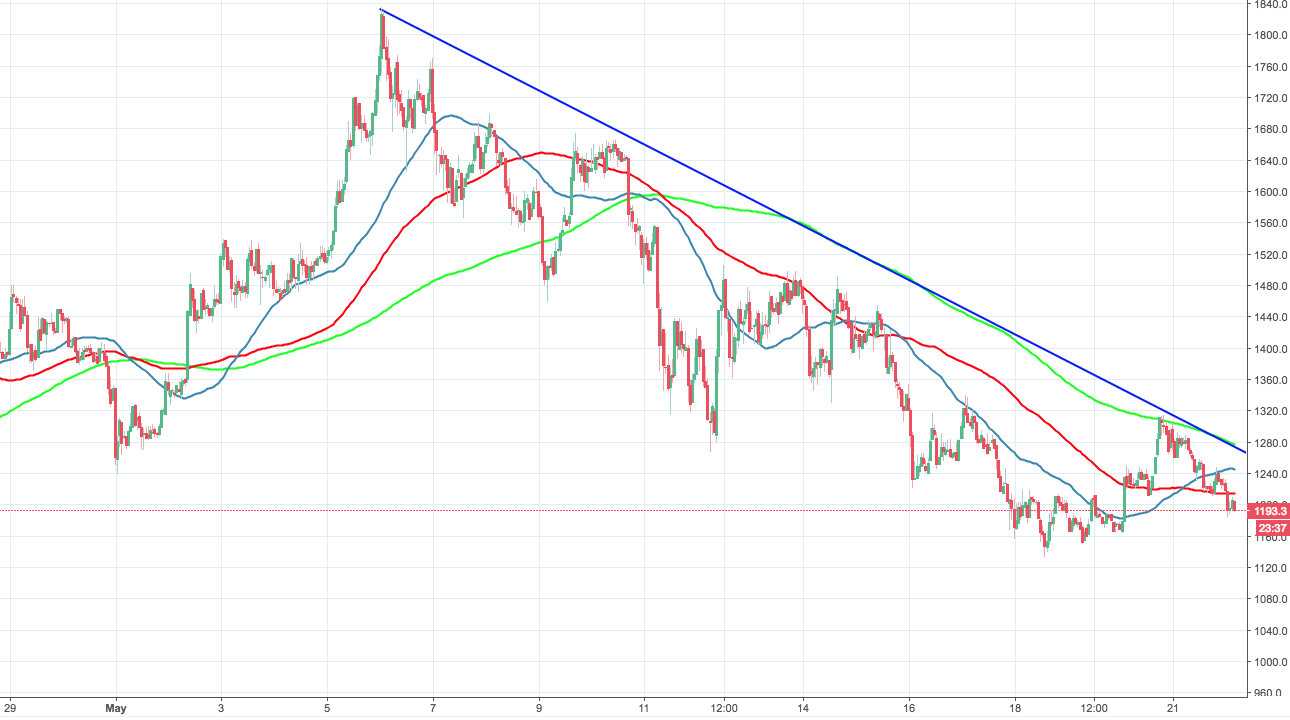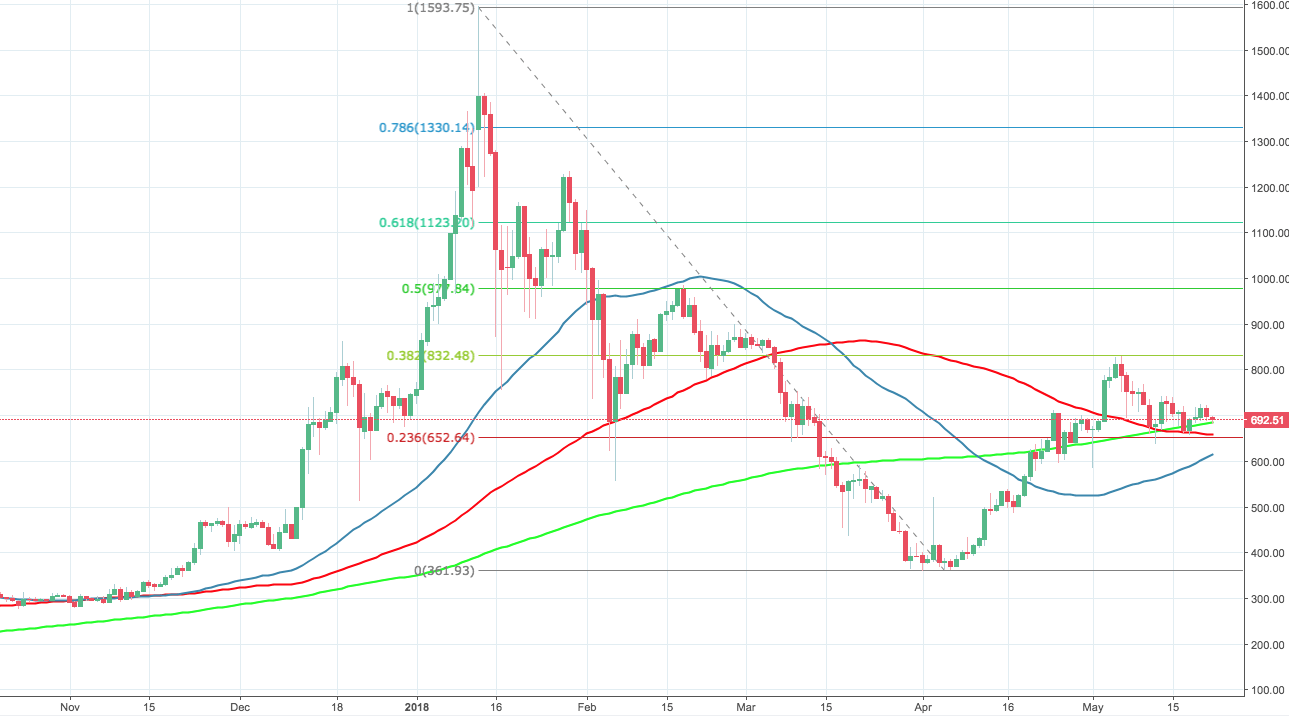Bitcoin Cash dropped to $1,180 handle early on Tuesday after an unsuccessful attempt to break above $1,300 resistance. BCH has lost over 11 percent on a weekly basis and over 50 percent since the beginning of the year.
Bitcoin Cash is the fourth largest coin with the market cap over $20.4B and daily average trading volume $620.8M. The trading volume has dropped significantly from over $1B registered on May 14, which may be attributed to BCH hard fork that happened on May 15.
Cryptocurrency investor Brian Kelly confirmed his optimistic view towards Bitcoin Cash speaking on CNBC's Fast Money on Monday. Bitcoin Cash miners met on Saturday to discuss the ways of financing further BCH development. It was proposed to allocate some part of the rewards they get from mining to a special fund and invest them in enhancing BCH ecosystem.
"That's how blockchains gain value. You're going to be getting more use cases to the extent that usefulness translates into value. That could be a positive for bitcoin cash," Kelly explained.
Bitcoin Cash technical picture
Bitcoin Cash is changing hands around $1,180. It broke below 100-SMA (hourly chart) at $1,214, which adds bearish pressure to the price movement. If the price fails to get back above $1,200 and $1,214, the selling pressure may increase and take it to $1,133, May 18 low. On the upside, the resistance is created by the above-mentioned 100-SMA and the downside trendline at $1,265.
BCH/USD, the hourly chart

(Click to enlarge)
Ethereum is trading marginally below $700, off from early Asian high registered at $721. The upside correction stalled as Ethereum is reversing gains together with other virtual coins. Related: The Wild World Of Celebrity Endorsed ICOs
New evidence to suggest tighter regulation ahead might have played the role in creating the bearish mood. A group of securities regulators in Canada and the United States revealed "Operation Cryptosweep" plan - an international crackdown on potentially deceitful cryptocurrencies and coin offerings.
Cryptosweep constitutes about "70 inquiries and investigations and 35 pending or completed enforcement actions since the beginning of the month" and qualifies as the largest coordinated crackdown to date by state officials on digital assets scams.
"We’re putting ourselves in the shoes of investors. We’re seeing what’s being promoted to investors. And then we’re taking the next step and then we’re finding out whether they’re complying with securities laws," Joseph Borg, president of NASAA and the director of the Alabama Securities Commission, commented.
Earlier we reported SEC attempts to educate investors through the fake ICO.
Ethereum technical picture
On the daily chart, ETH/USD is staying above both 100 and 200-DMA at $657 and $685 respectively. The coin has to make way above $800 and $832 (38.2$ Fibo) to prove the long-term upside reversal. On the downside, movement below the above said 100-DMA will open the way to $608 (50-DMA) and $600.
ETH/USD, the daily chart

(Click to enlarge)
The cryptocurrency market is a sea of red on Tuesday morning. All major coins are losing their positions, building on Monda's bearish trend. Total market capitalization dropped to $373B with aggregate trading volume $15.7B. Bitcoin is changing hands around $8,261, down 2.29 percent on the day. Ethereum has lost 2.55 percent to $687, Ripple is changing hands around $0.6710.
Related: Experts vs Investors: Who Has It Right?
Japan has a reputation of one the most loyal jurisdictions towards cryptocurrencies, but it seems that authorities don't feel it's right. The head of Bank of Japan Haruhiko Kuroda said that central banks are extremely cautious about issuing digital currencies for general public due to such problems as cybersecurity risks and unclear consequences for the financial system as a whole. He reminded that central banks were discussing digital currencies during the latest G20 meeting, where those concerns were touched upon.
Meanwhile, Bank of England has published working paper devoted to various scenarios of risks and financial stability challenges related to central bank digital currencies (CBDCs). At this stage, the regulator hasn't found any reasons to worry about the adverse effect of introducing CBDC on private credit or on total liquidity provision to the economy. Though, the conclusions are preliminary as the central bank is going to do additional research and analysis.
By Tanya Abrosimova via FX Street
More Top Reads From Safehaven.com:
















